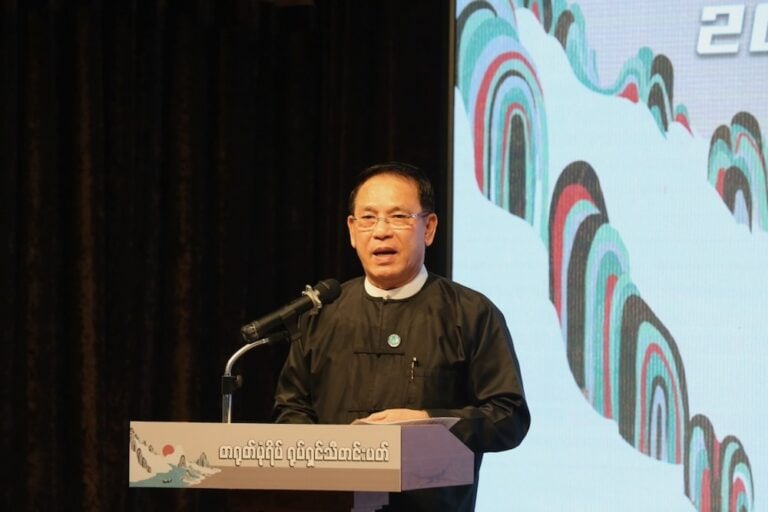The directive calls for "correct and complete quoting of the constitution, electoral laws and its rules".
(Mizzima News/IFEX) – The new regulation imposed by the Burmese junta’s censor board that bars domestic journals from misquoting the Constitution or electoral laws has cowed journalists, who say they dare not write anything on the subjects.
The 20 July 2010 directive issued by the state censor, the Press Scrutiny and Registration Board, which is administered by the Ministry of Information, calls for “correct and complete quoting of the constitution, electoral laws and its rules”. It also warns domestic journals that stern action could include loss of publishing licenses for breach of the directive.
“Publishers and editorial boards of the journals concerned are obliged to take serious [care in] editorial works quoting the provisions mentioned in the Constitution of the Republic of Union of Myanmar [Burma], and in articles and news reports with excerpts
related to electoral laws and rules issued by Union Election Commission,” the directive says.
“Any misquoting will be met with stern action including the revocation of publishing licenses,” the directive adds.
“The terms within the laws are incomprehensible to the general public so we have to elaborate on them in our news reports and articles related to the constitution and election matters,” a senior journalist from a weekly journal told Mizzima. “Now it is
impossible for us. Though we have to explain these terms in good faith for our readers, it could now give us a lot of trouble so we have started to avoid this subject.”
The directive follows the two-week suspension of “The Voice” journal after its “Concept and Process” article on constitutional issues written by Aung Htut appeared in issue 34, volume six.
The state censor had cleared the article after routine vetting but the Supreme Court intervened over its alleged misquotation of constitutional provisions, and the suspension followed.
“The laws are complicated, which make them incomprehensible to the average reader,” a news journal editor said. “We need to elaborate on the legal terms used . . . for readers’ convenience but [with the new rule] this has become very difficult.”
Similarly, the Supreme Court sent a protest note over the “Legal Issues” section of the “Flower News” weekly journal in last week’s issue, forcing the journal to drop the section and print a “correction”, an editor close to the journal said.
Journals were also being required to announce their own suspension of publication when ordered to do so by the censor board, which observers said was a calculated pretense to say the matter had nothing to do with the censors.
Journalists in Burma usually refer to the censors as the “Press Kempeitai”, named after the Japanese secret police in Burma during the Japanese occupation.
Former censor board director Major Tint Swe has been promoted to the post of deputy director general and will soon be transferred to another department under the Ministry of Information.
He was replaced in May by Lt. Col. Myo Myint Maung, who has tightened censorship on articles related to the election and electoral laws, and on interviews, articles and news reports on some political party leaders.
Also, during his tenure the journals “Envoy” and “Popular” were suspended for one week for printing portraits of actresses wearing dresses that were allegedly counter to traditional Burmese culture”.


